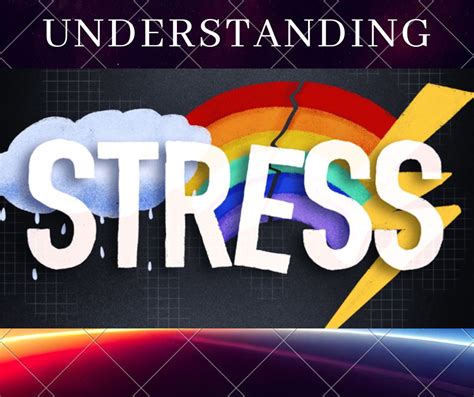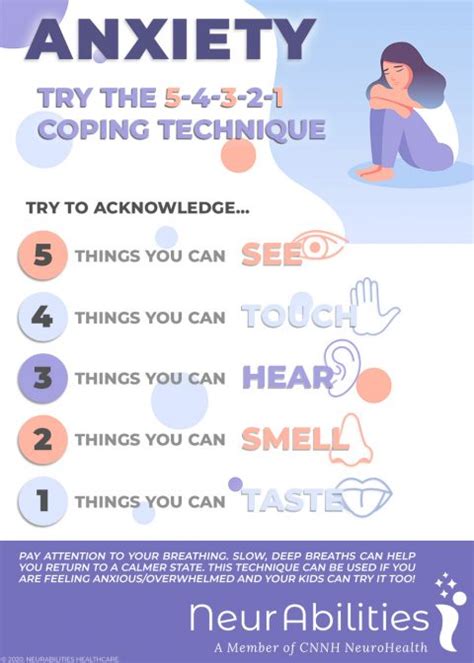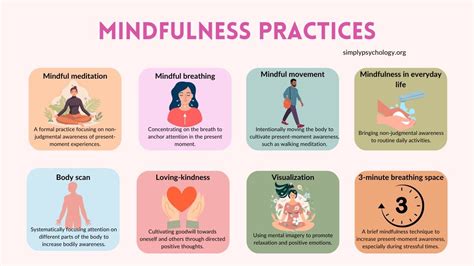Intro
Discover effective stress management techniques, including relaxation methods, anxiety reduction, and mindfulness exercises to improve mental well-being and overall health.
Stress is an inevitable part of life, and it can affect anyone, regardless of their background or circumstances. It's a natural response to a situation that makes us feel overwhelmed, anxious, or threatened. When we experience stress, our body's "fight or flight" response is triggered, releasing hormones like adrenaline and cortisol into our system. While some stress can be beneficial, helping us stay focused and motivated, excessive stress can have negative consequences on our physical and mental health. That's why it's essential to develop effective techniques for dealing with stress.
Chronic stress can lead to a range of health problems, including anxiety, depression, insomnia, and a weakened immune system. It can also affect our relationships, work performance, and overall quality of life. Moreover, stress can be contagious, spreading to those around us and creating a toxic environment. Therefore, it's crucial to recognize the signs of stress and take proactive steps to manage it. By doing so, we can improve our resilience, increase our productivity, and enhance our overall well-being.
In today's fast-paced world, it's easy to get caught up in the hustle and bustle of daily life and neglect our mental health. However, it's essential to prioritize stress management and make it a part of our daily routine. This can involve simple techniques like deep breathing, exercise, or meditation, which can help calm our mind and reduce stress levels. By incorporating these techniques into our daily life, we can better cope with stress and improve our overall health and well-being.
Understanding Stress

Types of Stress
There are several types of stress, including acute stress, chronic stress, and episodic stress. Acute stress is short-term and typically occurs in response to a specific event or situation. Chronic stress, on the other hand, is long-term and can be caused by ongoing problems or pressures. Episodic stress is a combination of acute and chronic stress, where we experience frequent episodes of stress due to recurring problems or situations. Understanding the type of stress we're experiencing can help us develop effective coping strategies and manage its impact on our life.Techniques for Dealing with Stress

Exercise and Physical Activity
Regular exercise is an effective way to reduce stress and improve our overall health. Physical activity can help reduce stress hormones, such as cortisol, and release endorphins, which improve our mood and reduce anxiety. Exercise can also provide a healthy distraction from stressful thoughts and emotions, helping us clear our mind and gain a fresh perspective. Some popular forms of exercise for stress relief include walking, running, swimming, and cycling.Time Management and Organization

Goal-Setting and Prioritization
Setting realistic goals and prioritizing our tasks can help us manage stress and achieve a better work-life balance. By focusing on what's truly important, we can avoid wasting time on non-essential tasks and reduce our stress levels. It's also essential to learn to say "no" to tasks that are not aligned with our goals or values, as taking on too much can lead to burnout and increased stress.Mindfulness and Relaxation Techniques

Meditation and Deep Breathing
Meditation and deep breathing are simple yet effective techniques for reducing stress and improving our overall well-being. Meditation involves focusing on a specific object, thought, or activity to achieve a mentally clear and emotionally calm state. Deep breathing involves slow, deliberate breaths to calm our mind and reduce stress levels. By combining meditation and deep breathing, we can create a powerful stress-reducing technique that can be practiced anywhere, at any time.Social Support and Connection

Building Strong Relationships
Building strong relationships involves effective communication, empathy, and understanding. By being a good listener, showing appreciation, and being supportive, we can strengthen our relationships and build a strong support network. This can involve scheduling regular social activities, joining social groups or clubs, and participating in community events. By prioritizing social connection and building strong relationships, we can reduce stress and improve our overall health and well-being.Cognitive-Behavioral Therapy

Identifying Negative Thought Patterns
Identifying negative thought patterns is an essential step in CBT. This involves becoming aware of our thoughts, emotions, and behaviors and recognizing how they contribute to stress and anxiety. By learning to identify and challenge negative thought patterns, we can develop more balanced and realistic thinking, which can help reduce stress levels and improve our overall well-being.Self-Care and Stress Management

Prioritizing Self-Care
Prioritizing self-care involves scheduling time for activities that nourish our mind, body, and spirit. This can involve setting aside time for exercise, meditation, or hobbies, as well as getting enough sleep, eating a balanced diet, and engaging in activities that bring us joy and relaxation. By prioritizing self-care, we can reduce stress levels, improve our resilience, and enhance our overall health and well-being.What are the common signs of stress?
+Common signs of stress include anxiety, irritability, insomnia, and physical symptoms like headaches or stomach problems.
How can I manage stress at work?
+Managing stress at work involves prioritizing tasks, taking regular breaks, and maintaining a healthy work-life balance. It's also essential to communicate with colleagues and supervisors to ensure a supportive work environment.
What are the benefits of exercise for stress relief?
+Exercise is an effective way to reduce stress, as it releases endorphins, which are natural mood-boosters. Regular exercise can also improve sleep quality, reduce anxiety, and enhance overall well-being.
How can I practice mindfulness and relaxation techniques?
+Mindfulness and relaxation techniques can be practiced through meditation, deep breathing, or yoga. These techniques involve focusing on the present moment, without judgment or distraction, to calm the mind and reduce stress levels.
What is the importance of social support for stress management?
+Social support is essential for stress management, as it provides a sense of belonging, emotional support, and practical help. Building strong relationships with family, friends, and colleagues can help reduce stress levels and improve overall well-being.
In conclusion, dealing with stress techniques is a vital aspect of maintaining our physical and mental health. By understanding the causes of stress, recognizing its signs, and developing effective coping strategies, we can reduce stress levels and improve our overall well-being. Whether it's through exercise, mindfulness, or social support, there are numerous techniques available to help us manage stress and achieve a better work-life balance. We encourage you to try out these techniques, share your experiences, and help others by spreading awareness about the importance of stress management. Remember, taking care of our mental health is essential, and by working together, we can create a supportive community that promotes well-being and resilience.
